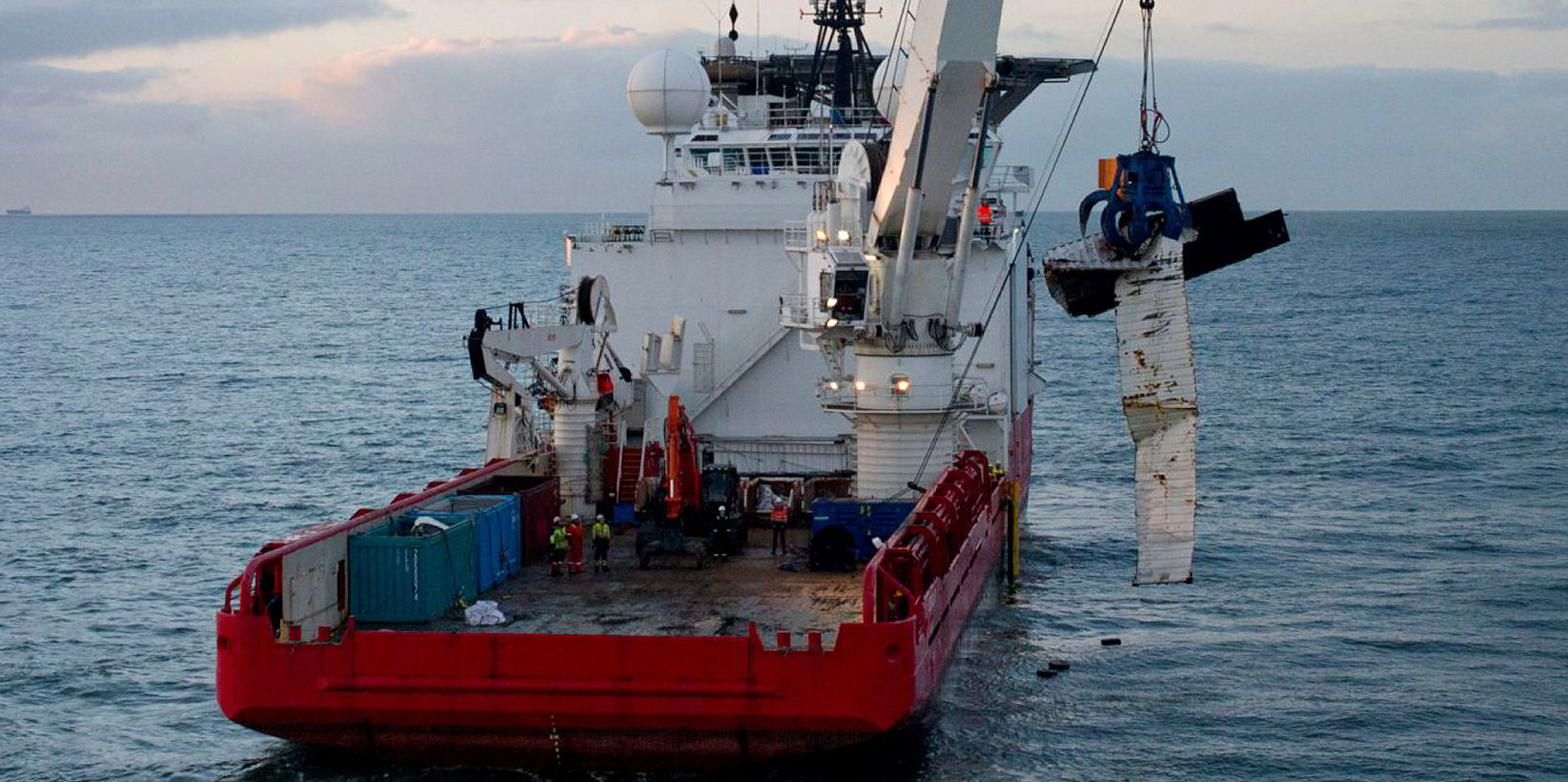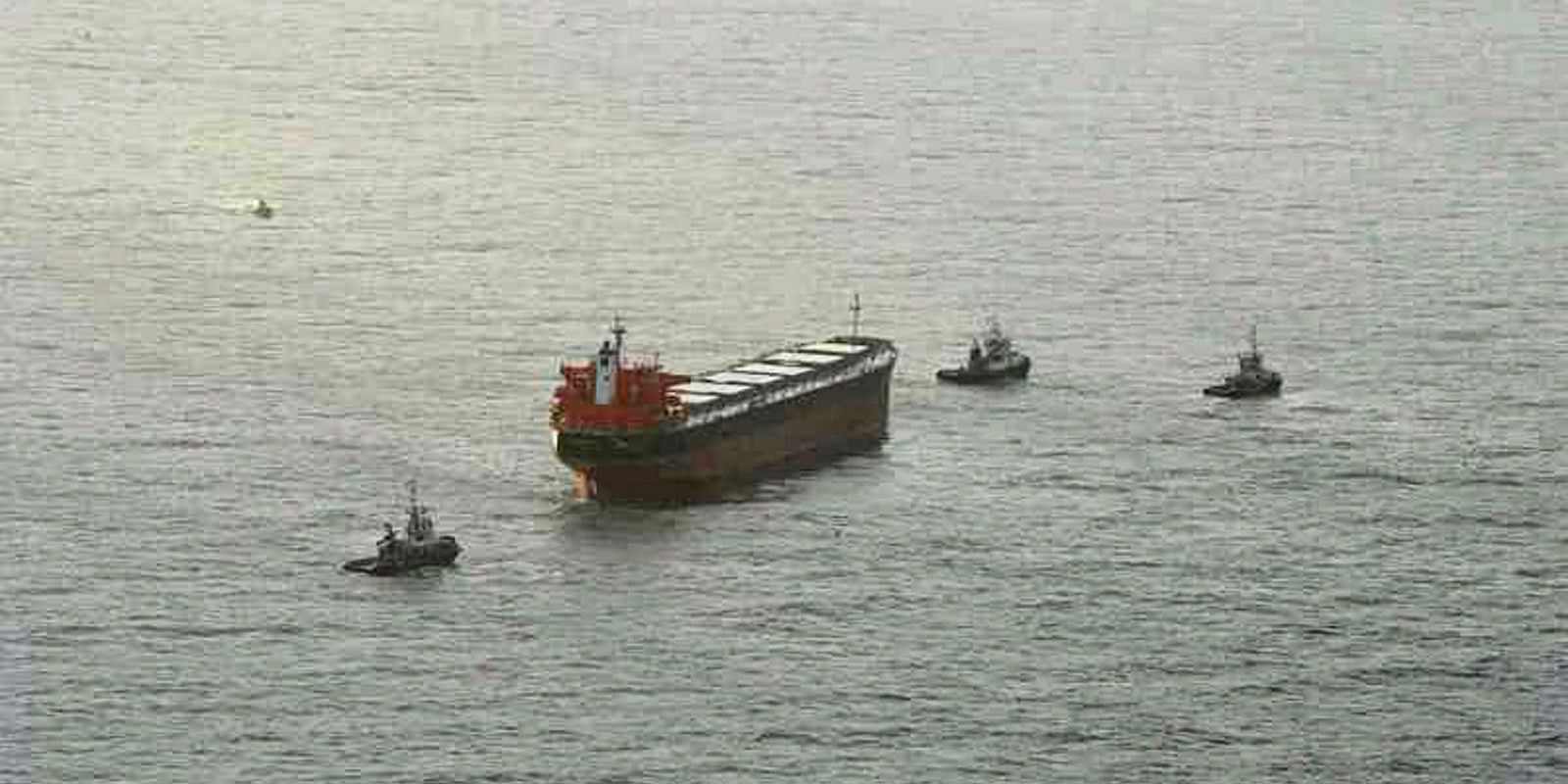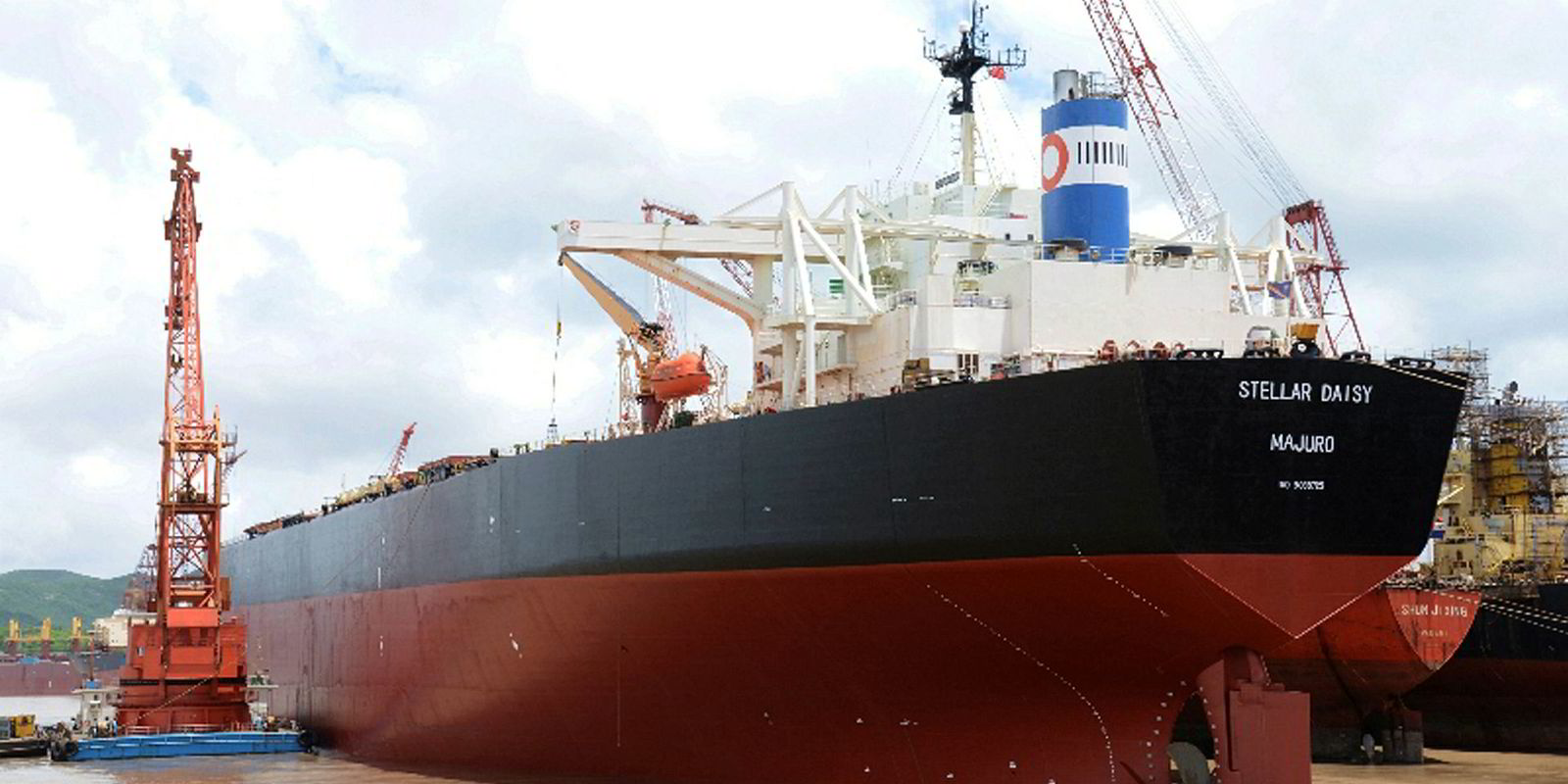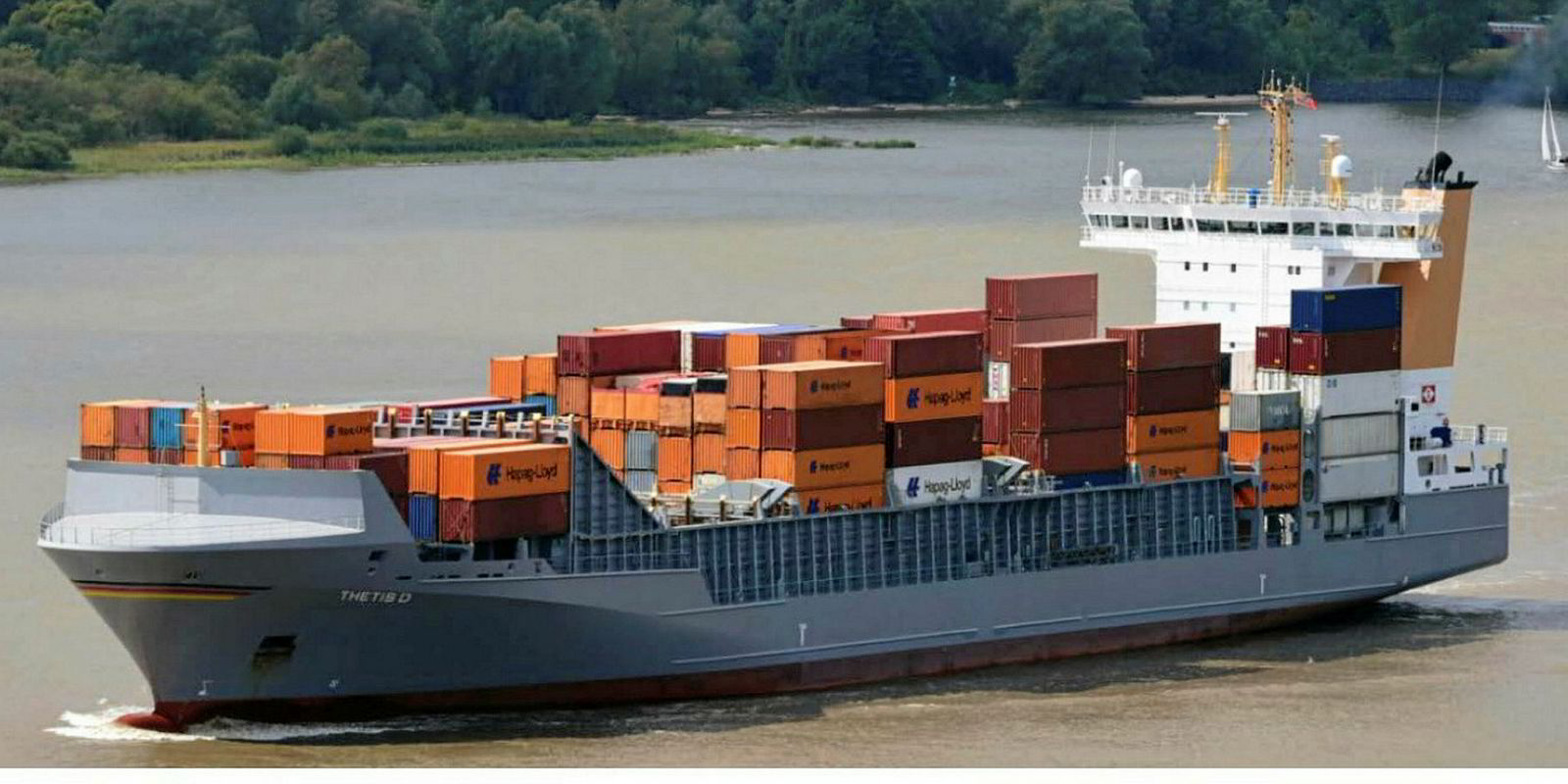Flag states often come under criticism for failing to produce accident investigation reports within the one-year limit laid out in the IMO’s Casualty Investigation Code.
In a recent example, the Marshall Islands came under scrutiny for taking two years to report on the loss of the Stellar Daisy (built 1993).
Pressures of work
However, Germany’s Federal Bureau of Maritime Casualty Investigation (BSU) this week offered a unique insight in its annual report into how increasingly complex investigations are now straining the resources of even dedicated national government bodies.
BSU investigates maritime accidents involving German-flag ships or casualties occurring in the country’s waters.
While 2018 turned out to be a relatively light year in terms of its workload, BSU director Ulf Kaspera admitted there had been times when “the BSU was forced to take a deep breath” because of the pressures of work.
The grounding of the 77,000-dwt Glory Amsterdam (built 2006) off the island of Langeoog in 2017, he said, tied up the organisation's resources due to the complexity of the casualty.
This month, BSU also said that a final report into the grounding of the German-flag, 43,000-dwt tanker Pazifik (built 2005) in Indonesian waters will not be made within the IMO's 12-month deadline.
In principle, investigations should be completed after one year. Unfortunately, this is not possible in many cases. The reasons for this are as varied as the actual accidents
BSU
Stretching resources
As an intermediate safety measure during the delay in publishing the report, BSU has advised shipowners that the shoal on which the vessel grounded had not been plotted on the ship’s nautical charts.
But BSU admitted it is not uncommon to fail to meet the one-year deadline.
“In principle, investigations should be completed after one year. Unfortunately, this is not possible in many cases.
"The reasons for this are as varied as the actual accidents. However, the rule is that the length of the investigation rises with the degree of complexity of the events surrounding the accident and the number of parties involved,” the agency said.
BSU said that last year its resources were stretched due to staff shortages.
“2018 was an especially challenging year for [the] division ... in terms of staffing. Duties normally performed by seven investigators had to be dealt with by only five staff members for long stretches," it said.
Tight budgets
Like all maritime accident investigation bodies, BSU works with limited financial resources. Last year’s budget amounted to €1.2m ($1.3m), with about €787,000 of that spent on staffing costs.
That figure seems fairly modest against the £4.1 annual budget held the UK’s Maritime Accident Investigation Branch.
While BSU actually underspent its 2018 budget, the year ahead could be busier, with a number of complex casualties already under investigation.
Among those casualties are the loss of 300 containers from the 19,224-teu MSC Zoe (built 2015) around the German-Dutch border and a serious fire onboard the 7,510-teu containership Yantian Express (built 2002) in the Atlantic.
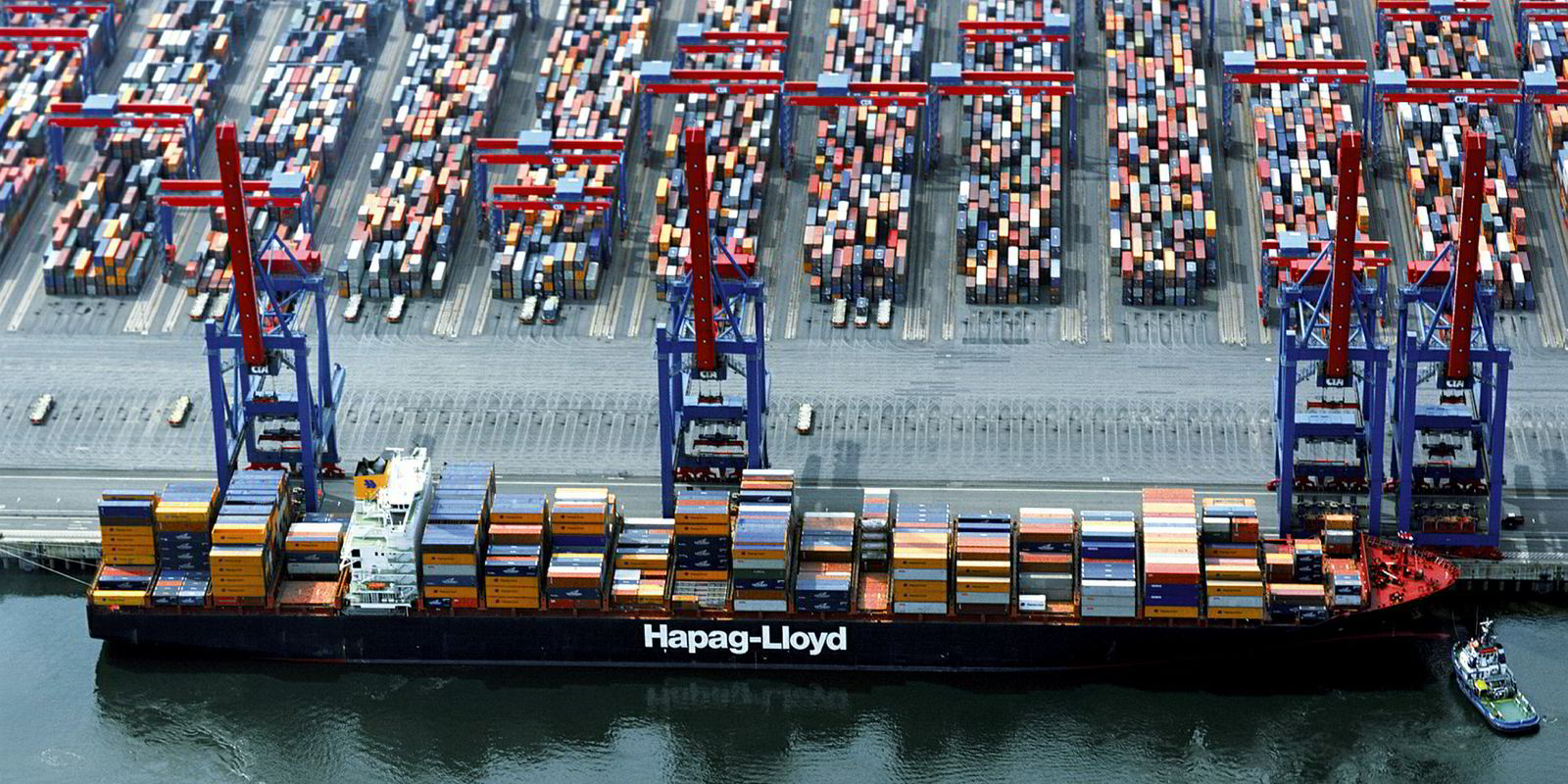
Its workload is also increasing with the growth of the European offshore energy business, which is drawing it further into offshore shipping markets.
Increased scrutiny of its work, partly through social media, is also taking up BSU's time. Its website attracted more than four million hits last year.
As an example of the social media effect, BSU told how a public demonstration against one of its reports' findings took place in September last year after a lively debate on social media.
The incident involved a collision between the icebreaker Stettin (built 1933) and ferry Finnsky (built 2012).
A total of 30 protestors appeared in front of the BSU building with placards claiming the Stettin’s position had not been fairly represented in BSU’s report.
Call for change
Although the protest finished peacefully and without incident, it was serious enough for the police to attend.
In its annual report, BSU revealed it is now working together with the Marine Accident Investigators' International Forum, which is an association of accident investigation authorities, to call on the IMO to revise its Casualty Investigation Code.
“It is 10 years since the code entered into force and sufficient experience has been gained to make a revision of some of its provisions,” BSU said.
However, it is unclear whether this will include a recommendation to relax the 12-month deadline on producing accident reports.
